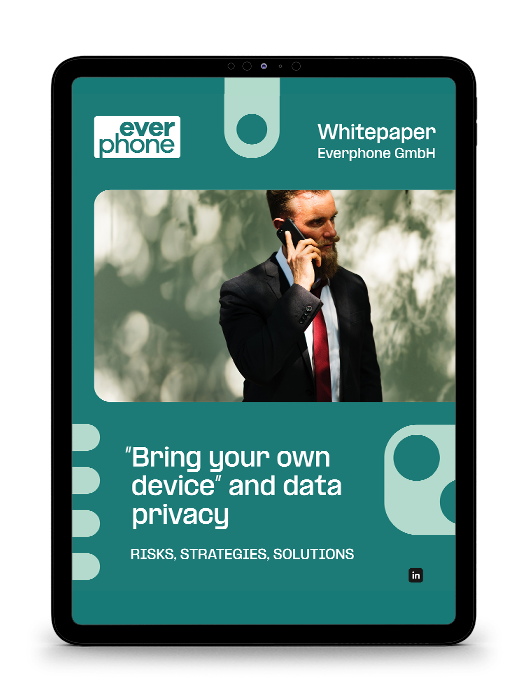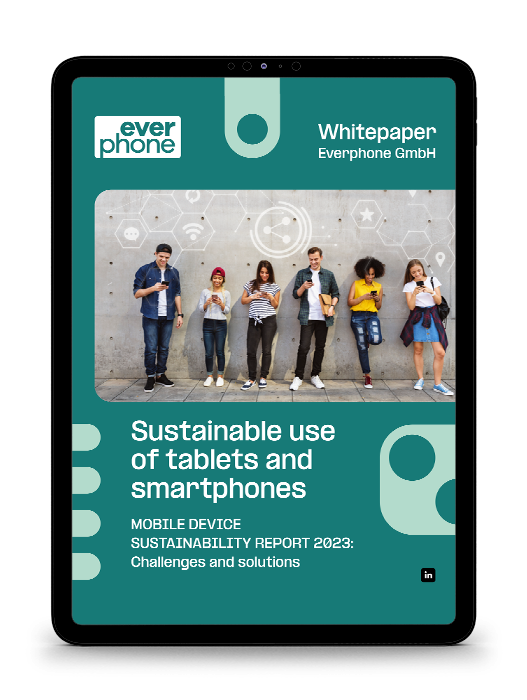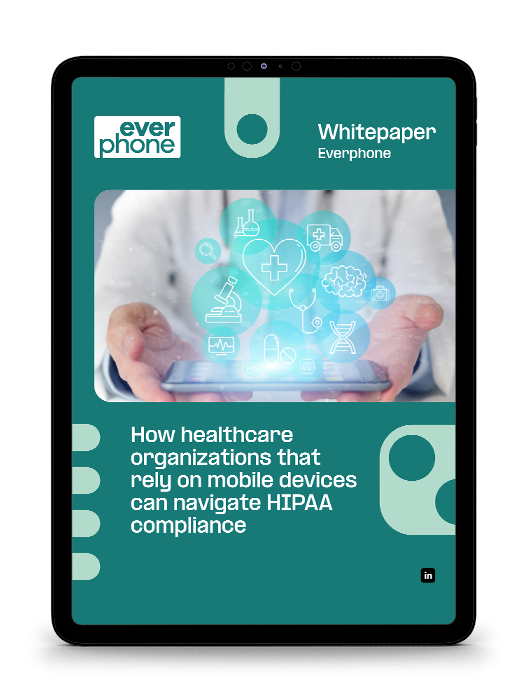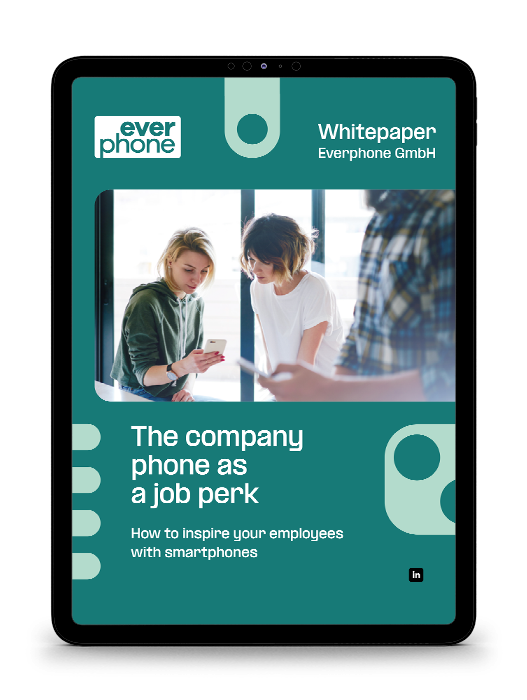Your employees need company phones, of course. But what is the best model when it comes to procurement? One option is smartphone leasing. We present its advantages, disadvantages, and alternatives in this article.

How does smartphone leasing work?
The leasing of smartphones is basically a financial service. The leasing contract relates strictly to the hardware, i.e. the device. The lessor enters into a contract with the lessee for a certain period of time (usually 24 or 36 months). This contract can, for example, cover a certain quantity of company cell phones. Both leasing and renting are ways of obtaining a large number of devices from one source. In addition to leasing smartphones, it is of course also possible to lease tablets and other devices.
The lessee becomes the holder of these company cell phones over this period of time. These can be bundled in batches on so-called leasing certificates. A batch usually comprises 50, 100, or 200 devices. However, the lessor remains the actual owner.
The costs are paid monthly during the term of the contract. If you decide to return the phone at the end of the contract, the old phones are ideally recycled and placed on the secondary market.
As the smartphone leasing contract only covers the hardware, you have to take care of all other issues relating to the company smartphones yourself. You have to think about setting up the devices as well as data protection compliance, data security, possible wear and tear, and more. Depending on the contract, this service is already included in a rental model.
What are the advantages of smartphone leasing?
The advantages of leasing smartphones are primarily to be seen in contrast to conventional purchasing. On the one hand, the costs for the company are spread over a longer period of time when renting a smartphone.
This makes it easier to factor them into your company’s ongoing budget. You avoid having to pay the total procurement costs for all phones at the same time. Instead, you can use the budget for the company’s other necessary expenses.
For many SMEs, it wouldn’t even be possible to pay the full procurement costs for all phones. Smartphone leasing therefore makes it possible for smaller or medium-sized companies to think about supplying the (entire) workforce with company phones in the first place.

Another advantage is the ability to use the latest technology. When you buy a device, you are committed to it for the long term due to the high purchase costs alone, to make it profitable to use. But of course the standards for smartphones and other devices are constantly evolving. Leasing offers a certain degree of flexibility here: At the end of the smartphone leasing period, you can extend the contract and get newer devices.
But what happens to the old devices then? With leasing, you won’t be stuck with them. Instead, you return them to the lessor. This saves both physical space in your premises and the capacity of your employees, who don’t have to deal with this problem.
What are the disadvantages of smartphone leasing?
In addition to the various conveniences, however, there are also critical points to consider when leasing company phones. Of particular note here is the issue of excessive costs when leasing a smartphone. For example, you have to pay for the wear and tear of the devices used when you return them and, if necessary, make a deduction for this—which is difficult to plan. And if the basic but often time-consuming repair service included in the lease is not enough for you during use? Then you also have to reckon with additional repair costs.
Furthermore, leasing contracts are not very flexible. Have you concluded a contract with device bundling? If you receive 100 devices in a bundle, you must and can only return them in the complete bundle. If you do not return all 100 phones by the deadline, all payments will simply continue.
A similar problem occurs when employees change. If an employee takes time off or leaves the company, the device remains with your company. The leasing contract does not provide for early return of the smartphone. Instead, the leasing contract simply continues and you have to take care of reassigning the device yourself.
These are just a few examples of the less advantageous aspects of leasing. But what are your options? What alternatives are there to leasing?
Three types of IT procurement: Buy, lease, rent
As mentioned at the beginning, one of the alternatives to smartphone leasing is to purchase the devices independently. However, this type of procurement poses the greatest challenges for a company. On the one hand, your company is responsible for all aspects of the devices itself.
Sourcing and procuring the appropriate number of specific models is only the first step. But this alone requires an enormous amount of time and expertise.
On top of this, you also need to consider the costs when procuring. In the case of independent purchases, these are incurred as capital expenditure (CapEx). The costs are therefore very high within a short period of time. When leasing or renting smartphones, on the other hand, the costs are incurred as monthly operational expenditure (OpEx). This spreads out the expenses and makes them more manageable for many companies. There might also be some tax benefits with OpEx, depending on your country of operation.
Furthermore, your company must also take care of setting up and maintaining the phones itself when purchasing them. One example of this is the issue of device security and GDPR compliance (whether security for Android devices, data security for Xiaomi, or similar).
Another alternative to leasing smartphones is renting. This is generally perceived as being very similar to leasing. However, you will see that there are significant differences between the two procurement methods.

Why is device-as-a-service a good alternative to leasing?
Ideally, you can combine the rental of your new company smartphones with device-as-a-service (DaaS). Device-as-a-service means that the contract includes not only the devices but also the all-round service. Procurement, management, repair, return: Everything is handled by the DaaS provider.
Everphone has coined the service and offers you the right service package for your company. With this rental model, you save costs compared to the other options, as the important services are already included. If your company does not yet have an MDM, Everphone will be happy to advise you and set it up on the new company phones. If you are looking for a new security solution, Everphone also has experienced partners.
Does your company prefer to work with T-Mobile company phones? No problem! Your company wants to use eco-friendly phones? That’s also possible with Everphone! And even if you already use smartphones and don’t want to part with them yet: With “buy and rent back” (BARB), Everphone integrates your existing devices into the all-round service. This means your company no longer has to worry about company smartphones.
Everphone’s service is also flexible. If an employee leaves your company, the device can simply be returned. If the position is filled, the new employee (if you so decide) can choose a new device in the portal with “choose your own device” (CYOD). And it will be in his or her hands in no time!






















